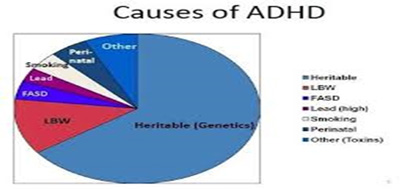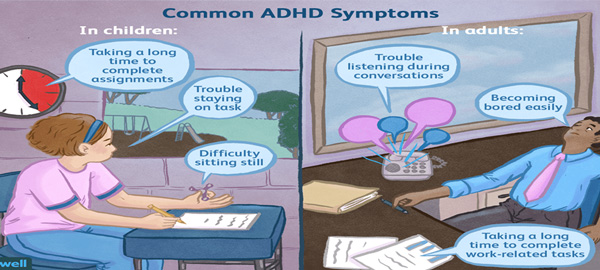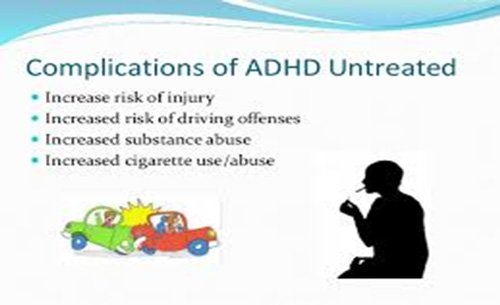Introduction
Attention deficit hyperactivity disorder (ADHD) is a brain disorder that affects how you pay attention, sit still, and control your behaviour. It happens in children and teens and can continue into adulthood. ADHD is the most commonly diagnosed mental disorder in children. It’s usually spotted during the early school years, when a child begins to have problems paying attention.

Understanding ADHD
Attention deficit hyperactivity disorder (ADHD) is a neurodevelopmental disorder characterised by persistent patterns of inattention, hyperactivity, and impulsivity that interfere with daily functioning and development. ADHD is one of the most common neurodevelopmental disorders affecting children, with estimates suggesting it affects approximately 5-7% of children worldwide. Boys are more commonly diagnosed with ADHD than girls. The impact of ADHD extends beyond childhood, influencing academic and occupational performance, social relationships, and emotional well-being. Adults with ADHD may struggle with time management, organisation, and maintaining employment, leading to challenges in multiple domains of life.
Causes of ADHD
Experts aren’t sure what causes ADHD. Several things may lead to it, including:
- Genes- ADHD tends to run in families.
- Poor nutrition , infections, smoking , drinking, and substance abuse during pregnancy - These things can affect a baby’s brain development.
- Chemicals- Brain chemicals in people with ADHD may be out of balance.
- Brain changes- Areas of the brain that control attention are less active in children with ADHD.
- Toxins, such as lead- They may affect a child's brain development.
- A brain injury or a brain disorder- Damage to the front of the brain, called the frontal lobe, can cause problems controlling impulses and emotions.

Symptoms of ADHD
1) Symptoms in Children
Symptoms are grouped into three types:
- Inattentive = A child with ADHD
- Hyperactive-impulsive = A child with ADHD
- Combined = This involves signs of both other types
- Inattentive = A child with ADHD
- Is easily distracted
- Doesn't follow directions or finish tasks
- Doesn't seem to be listening
- Doesn't pay attention and makes careless mistakes
- Forgets about daily activities
- Has problems organising daily tasks
- Doesn’t like to do things that require sitting still
- Often loses things
- Tends to daydream


- Hyperactive-impulsive = A child with ADHD
- Often squirms, fidgets, or bounces when sitting
- Doesn't stay seated
- Has trouble playing quietly -Is always moving, such as running or climbing on things (In teens and adults, this is more often described as restlessness.)
- Talks excessively
- Is always “on the go,” as if “driven by a motor”
- Has trouble waiting for their turn
- Blurts out answers
- Interrupts others
- Combined
- This involves signs of both other types.
2) Symptoms in Adults
Symptoms of ADHD may change as a person gets older. They include:
- Often being late or forgetting things
- Anxiety
- Low self-esteem Often bored
- Trouble concentrating when reading
- Mood swings
- Depression
- Relationship problems
- Problems at work
- Trouble controlling anger
- Impulsiveness
- Substance misuse or addiction
- Trouble staying organised
- Procrastination
- Easily frustrated

Risk Factors
Risk of ADHD may increase if:
- 1) You have blood relatives, such as a parent or sibling, with ADHD or another mental health disorder
- 2) Your mother smoked, drank alcohol or used drugs during pregnancy
Complication
ADHD can make life difficult for you. ADHD has been linked to:
- Poor school or work performance
- Unemployment
- Financial problems
- Trouble with the law
- Alcohol or other substance misuse
- Frequent car accidents or other accidents
- Unstable relationships
- Poor physical and mental health
- Poor self-image
- Suicide attempts

Homoeopathy and ADHD
Homoeopathy offers a holistic and individualised approach to managing attention deficit hyperactivity disorder (ADHD). By addressing the underlying imbalances in the body and mind, homoeopathic remedies aim to alleviate symptoms and promote overall well-being. Here's how homoeopathy can be beneficial for individuals with ADHD
Homoeopathic Medicines for ADHD
- Cina
- The child is very cross, ugly, and does not want to be touched.
- Very touchy, petulant.
- Irritability, Cannot bear to be looked at
- Desires many things, but rejects everything offered, throws things away.
- Violent screaming attacks at night.
- Stramonium
- Intense emotions in a child lead to violence, which is out of control
- Sudden anger. Can be destructive with striking, biting, tearing, smashing, strangling.
- Strong fears at night, Wakes with terror.
- The sight of water brings on spasms.
- Tuberculinum
- Hyperactivity and restless
- Compulsive behaviour.
- Continue to curse and swear
- Every trifle irritates him.
- Bangs the head when angry
- Tarantula
- Suddenly changing moods, fancies.
- Crafty, cunning, dishonest, selfish, destructive, destroying whatever she can lay hand on , tears her clothes, etc.
- Rolls on the ground from side to side.
- Hurried, intense, excited and restless patient, Impatient
- Veratrum Alb
- Hyperactive, disobedient child.
- Mania with desire to cut and tear everything
- Cannot bear to be left alone, yet refuses to talk.
- Asks many questions
- Agaricus
- Morose, self-willed, stubborn child
- Awkward, clumsy all the time.
- Pressure on the spine causes involuntary laughter
- Convulsions after being scolded
- Sings talks, but does not answer well.
- Medorrhinum
- Impulsive, rude, mean, cruel behaviour.
- Cross by day, good at night.
- Sad all time > weeping.
- Weeping ameliorates symptoms.
- Lachesis
- Passionate and expressive
- Creative, vital, lively all time, Constant overflowing of new ideas.
- Loquacity, Jumps from one subject to another.
- Crawls on the floor, hides, spits, laughs and is angry during spasms.
- Talking, singing, and whistling constantly.
- Lycopodium
- Inferiority complex.
- Egotism, Bullying and dominating nature,
- Arrogant with Lack of discipline
- Irritable, peevish and cross on waking.
- Easily angered, cannot endure contradiction.
- Weeps all day, cannot calm herself.
- Phosphorous
- Open, bright excitable and anxious patients
- Great loquacity
- Oversensitive to external impressions like light and noise.
- Destroys everything
Benefits of Homoeopathic Treatment
- Individualised Care: Homoeopathy recognizes that each person is unique. A homoeopath will assess your symptoms, medical history, and lifestyle to prescribe a personalised treatment plan tailored to your needs.
- Gentle and Natural: Homoeopathic remedies are derived from natural substances and are known for their minimal side effects. They work in harmony with the body, promoting self-healing and overall well-being.
- Holistic Approach: Homoeopathy takes into account not only the physical symptoms but also the emotional and mental aspects of an individual. It aims to restore balance at all levels, providing comprehensive care.
- Long-Term Relief: By addressing the underlying causes of Ulcerative Colitis,homoeopathy strives to achieve long-term relief and improved quality of life.
Patient Review
Consulting a Homeopath
For effective management of ADHD with homoeopathy, consulting a qualified homoeopath is essential. Sanjivani homoeopathic doctor conducts a thorough assessment, considers the individual's symptoms and overall health, and prescribes personalised remedies tailored to their specific condition.
Sanjivani Homeopathy Clinic USP
- No homoeopathy Dietary Restrictions:
Allows patients to enjoy foods like onion, garlic, and coffee, ensuring a stress-free treatment journey.
- 24/7 Online Consultations:
Enables convenient access to doctors with detailed counseling, history management, and follow-ups.
- Highly Skilled Team:
Experienced BHMS and MD doctors, supported by multilingual and professional staff.
- Patient-Centric Care:
Simplifies treatment with modern, adaptable solutions and clear communication.
Click Here for Detailed "Sanjivani USP"
FAQ's
- What is homoeopathy ?
Homoeopathy is a holistic science which belives in the law of Similia Similibus Curenter i.e Like Cures Like .It was discovered by Dr Samuel Christian Hahnemannn in 1796.
- Is there any side effects of homoeopathy?
As homoeopathic medicines are made from natural substances this medicines have no side effects and are completely safe to consume
- Is there any diet restriction to take homoeopathic medicines?
There are no diet restrictions for homoeopathic medicines. One should only avoid eating or drinking any liquid other than water at least 30 minutes before and after taking homoeopathic medicines.
Click Here for "Frequently Asked Questions."
Conclusion
Homoeopathy offers a holistic and personalised approach to managing ADHD symptoms, addressing not only the behavioural aspects but also the underlying causes. By exploring homoeopathic remedies tailored to individual needs, individuals with ADHD can experience relief from their symptoms and improve their quality of life. However, it's crucial to seek guidance from a qualified Sanjivani homoeopath to ensure safe and effective treatment.
Disclaimer : The information provided in this blog is for educational purposes only and should not be considered medical advice. Please consult with a qualified healthcare professional before starting any treatment for ADHD or any other medical condition.


